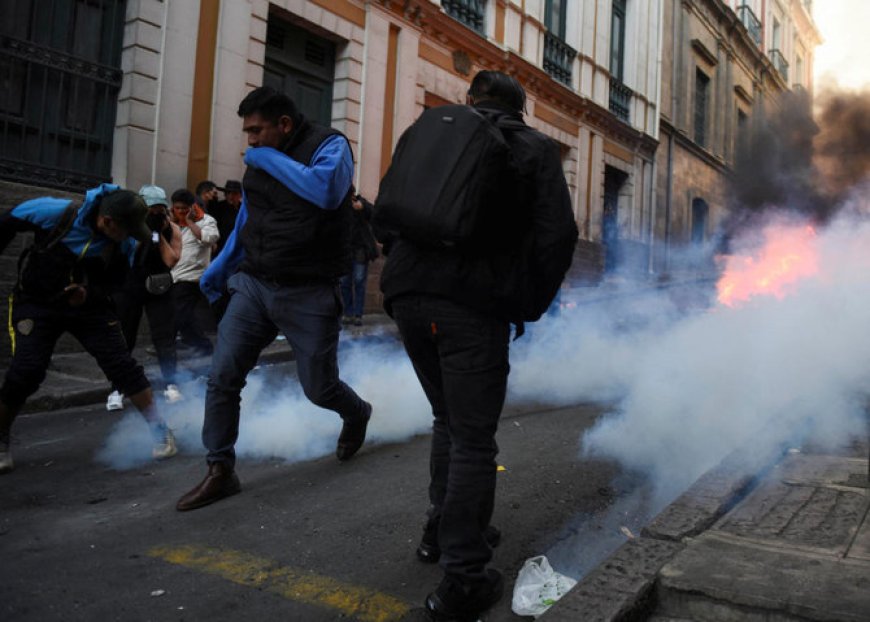Bolivian Army Leaders Arrested After Foiled Coup Attempt

In a dramatic turn of events, two senior Bolivian army leaders were arrested on Wednesday following a coup attempt that saw soldiers and tanks mobilize in front of government buildings in La Paz. The swift crackdown by President Luis Arce's administration averted what could have been a significant threat to Bolivia’s fragile democracy, just weeks before pivotal elections.
The confrontation began in the afternoon when military units entered Plaza Murillo, the historic square housing both the presidential palace and Congress. One tank reportedly attempted to breach a metal door of the presidential palace, intensifying the situation. The unrest lasted for approximately five hours before the forces retreated.
General Juan Jose Zuniga, the now-dismissed army chief, and Juan Arnez Salvador, the head of the Bolivian navy, were both apprehended. Interior Minister Eduardo del Castillo announced their arrests, condemning them as "military coup leaders who tried to destroy democracy and the institutionality of our country and failed."
President Arce addressed hundreds of supporters from the government palace balcony, reaffirming the inviolability of Bolivia's democracy. “No one can take away the democracy we have won,” he proclaimed, urging the public to organize against the coup attempt.
Arce had previously called for national mobilization in a televised message, denouncing the coup and firing Zuniga and Salvador, promptly appointing new military leaders.
Before his arrest, Zuniga claimed that the president had orchestrated the coup attempt to boost his sagging approval ratings. According to Zuniga, during a meeting on Sunday, Arce allegedly instructed him to stage an uprising to create a crackdown scenario that would portray the president as strong and decisive. Arce has not responded to these allegations.
The backdrop of this turmoil is a deeply polarized Bolivia, struggling with political instability and internal conflicts within the ruling Movement Towards Socialism (MAS) party. The friction between President Arce and his predecessor, Evo Morales, has only intensified this instability. Morales, who served as Bolivia’s first Indigenous president, remains a divisive figure after attempting to extend his term through contested elections in 2019, which led to his resignation and exile.
Morales returned to Bolivia following Arce’s election victory in 2020 but has since been embroiled in a power struggle with Arce, criticizing the current government for corruption and other issues. Morales's political ambitions were thwarted when the Constitutional Court disqualified him from running in the 2025 elections, though he still seeks the MAS nomination.
International reactions have been swift. The United States, through a spokesperson for the National Security Council, called for calm and closely monitored the situation. United Nations Secretary-General Antonio Guterres expressed deep concern, urging all parties to maintain constitutional order and peace. Latin American leaders, including those from Chile, Ecuador, Peru, Mexico, Colombia, Venezuela, and Brazil’s President Luiz Inacio Lula da Silva, condemned the coup attempt, reaffirming their support for democracy in Bolivia.
The Organization of American States (OAS) also issued a strong statement, emphasizing that the international community would not tolerate any breach of Bolivia's legitimate constitutional order.
As Bolivia navigates these tumultuous times, the nation’s commitment to democracy and constitutional order remains under the global spotlight, with the next steps of both the government and the opposition likely to shape the country's future trajectory.













































